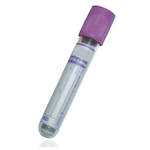Suitable Specimen Types
- EDTA Whole Blood
Specimen Transport
Samples should be sent to the referral laboratory using first class post or courier. Samples should generally be sent the day of collection or the following day
All samples sent to the referral laboratory should be accompanied by a completed request form.
Sample Processing in Laboratory
Usual
Sample Preparation
Do not centrifuge.Sample Stability
Store at 4oC
Perchloroethylene (Tetrachloroethene)
General Information
Perchloroethylene (Tetrachloroethylene) is widely used for dry-cleaning fabrics and metal degreasing operations. The main effects of perchloroethylene in humans are neurological, liver, and kidney effects following acute (short-term) and chronic (long-term) inhalation exposure. Adverse reproductive effects, such as spontaneous abortions, have been reported from occupational exposure to tetrachloroethylene; however, no definite conclusions can be made because of the limitations of the studies. Results from epidemiological studies of dry-cleaners occupationally exposed to tetrachloroethylene suggest increased risks for several types of cancer. Animal studies have reported an increased incidence of liver cancer in mice, via inhalation and gavage (experimentally placing the chemical in the stomach), and kidney and mononuclear cell leukemia in rats.
In the mid-1980s, EPA considered the epidemiological and animal evidence on perchloroethylene as intermediate between a probable and possible human carcinogen (Group B/C).
Perchloroethylene can be measured in the breath, and breakdown products of perchloroethylene can be measured in the blood and urine.
Notes
A whole blood sample (EDTA) is required for perchloroethylene analysis. Perchloroethylene is poorly metabolised so urine samples are unsuitable. Samples should be sent first class post or courier.
Reference Range
Provided by reference laboratory.
Specifications
-
EQA Status:
None Stated
